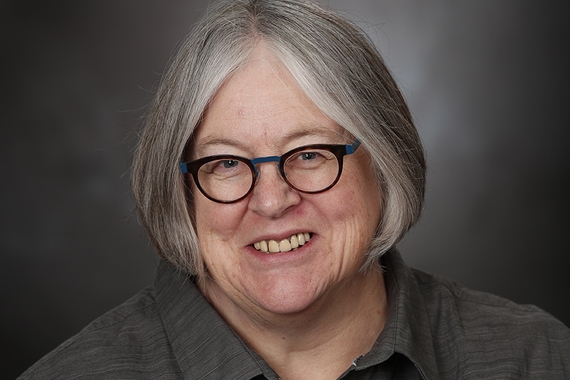A Career in Finance? Start with English Studies

As an undergraduate, James Johnson (BA 1982) knew he was headed for graduate school in business. "I took advantage of my time at the U of M to explore areas of personal interest in literature and writing," he recalls. The communication skills Johnson developed paid off in business school at the University of Chicago and in the 30 years he worked in technology finance in the Bay Area. He has served as Chief Financial Officer for five technology companies: the last, Adaptive Insights, was acquired by Workday in 2018 for $1.55 billion. Johnson's advice to students interested in such a career? As he says below, "Use your undergraduate program to explore an area of personal interest to you."
How do the skills you learned in the study of literature support what you do? Is this a good career fit for English majors?
First and foremost, being able to write and communicate succinctly and effectively is very important for people working in business and finance. Financial analysis is not particularly useful if you cannot turn your analyzed data into useful information that you can communicate to your audience. English majors focus their energy on reading critically, forming well-reasoned opinions, and communicating clearly. These skills are highly applicable to a career in finance, whether within a technology or product company, or financial services firm.
What have you enjoyed about the work, over your career?
The primary force behind tech companies in Silicon Valley has always been to grow and build successful businesses. I have always had a builder personality, so I enjoyed the camaraderie in having a shared goal of creating successful companies. When I joined Sun Microsystems computer company in 1988 we had a couple thousand employees and several hundred million in sales. Ten years later we had over 30,000 employees worldwide and several billion dollars in sales.
Finance involves a number of different focuses, from basic accounting and writing financial statements to forecasting, quantitative modeling, investor relations, and performance analysis and reporting. As an analyst in my early career I spent a lot of my time on budgeting as well as forecasting results and measuring and reporting on the business performance. We also provided financial analysis on projects such as projections for new product lines or investments in new geographies.
"Being able to communicate
succinctly and effectively is
very important for people
working in business and
finance." - James Johnson
Advice for current majors interested in careers like yours?
My path from CLA was directly into the Graduate School of Business at the University of Chicago and then into a corporate financial analyst position. English majors can bring something unique into an MBA program. Many MBA students enter graduate school after attaining a business or economics undergrad degree, but this is clearly not a requirement and can be somewhat redundant with the coursework of the graduate program. If you are considering attending a graduate business program I would suggest using your undergraduate program to explore an area of personal interest to you. Businesses look for well-rounded individuals.
There are many ways for liberal arts majors to add business muscle to their resume while they are in college. I chose to minor in economics, which gave me a leg up on the graduate economics courses in business school. Additionally, preparation in accounting courses or evening sessions on current topics in finance can be helpful. Find something that both interests you and is also applicable to your next steps in pursuit of your business career.
What do you most appreciate about your time at the University of Minnesota?
I entered the U of M after four years in the US Navy (which is a pretty rigid environment), and what I appreciated most was the luxury of time to go deep into writing and literature. I found that I understood and enjoyed literature much more when participating in discussion and debate led by seasoned professors. Although my focus was American literature, I also loved reading and discussing Shakespeare and exploring the Russian classics in depth. I still remember my classes on Faulkner and Fitzgerald with the late Philip Furia. Professor Furia also wrote a wonderful letter of recommendation for my application to the University of Chicago MBA program.
What books are you recommending these days?
The last book I recommended to a friend was Death Comes for the Archbishop by Willa Cather. I would also recommend her novel The Professor’s House. Both have a Western connection that I like, having lived in the West for most of my later life. Another book that I recommend is Angle of Repose by Wallace Stegner, who did his writing just down the road here in the Bay Area.


